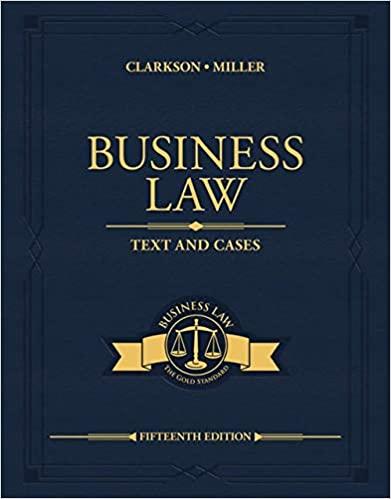Question
Johnny, a twelve year old boy has a history of getting drunk. Knowing that his parents were going to be out of town, he decided
Johnny, a twelve year old boy has a history of getting drunk. Knowing that his parents were going to be out of town, he decided to throw a party. He invited all of the cool kids from his school. Late in the day he went to the local liquor store to buy alcohol. When he went to the liquor store he was unable to buy any liquor with his fake id. Worried that his party would not be a success, he decided to approach someone and ask them to buy liquor for him. Unbeknownst to Johnny, an undercover police officer was assigned to crack down on minors purchasing alcohol and he approached Johnny. He asked Johnny if he was looking for someone to buy him beer. Johnny replied, yes and some hard stuff too. The undercover police officer told Johnny that for a six pack of beer he would in turn buy Johnny the alcohol he wanted. Johnny agreed and gave the undercover officer the money in order to make the purchase. Johnny was arrested, and was convicted at trial for conspiracy to purchase alcohol as a minor. Was the court correct in convicting Johnny for conspiracy?
- No, because there was no agreement between the parties.
- No, because there was no completion of the underlying crime.
- Yes, because although he agreed with an undercover officer there was an agreement.
- Yes, because there was an agreement between two or more to commit a crime.
Step by Step Solution
There are 3 Steps involved in it
Step: 1

Get Instant Access to Expert-Tailored Solutions
See step-by-step solutions with expert insights and AI powered tools for academic success
Step: 2

Step: 3

Ace Your Homework with AI
Get the answers you need in no time with our AI-driven, step-by-step assistance
Get Started


